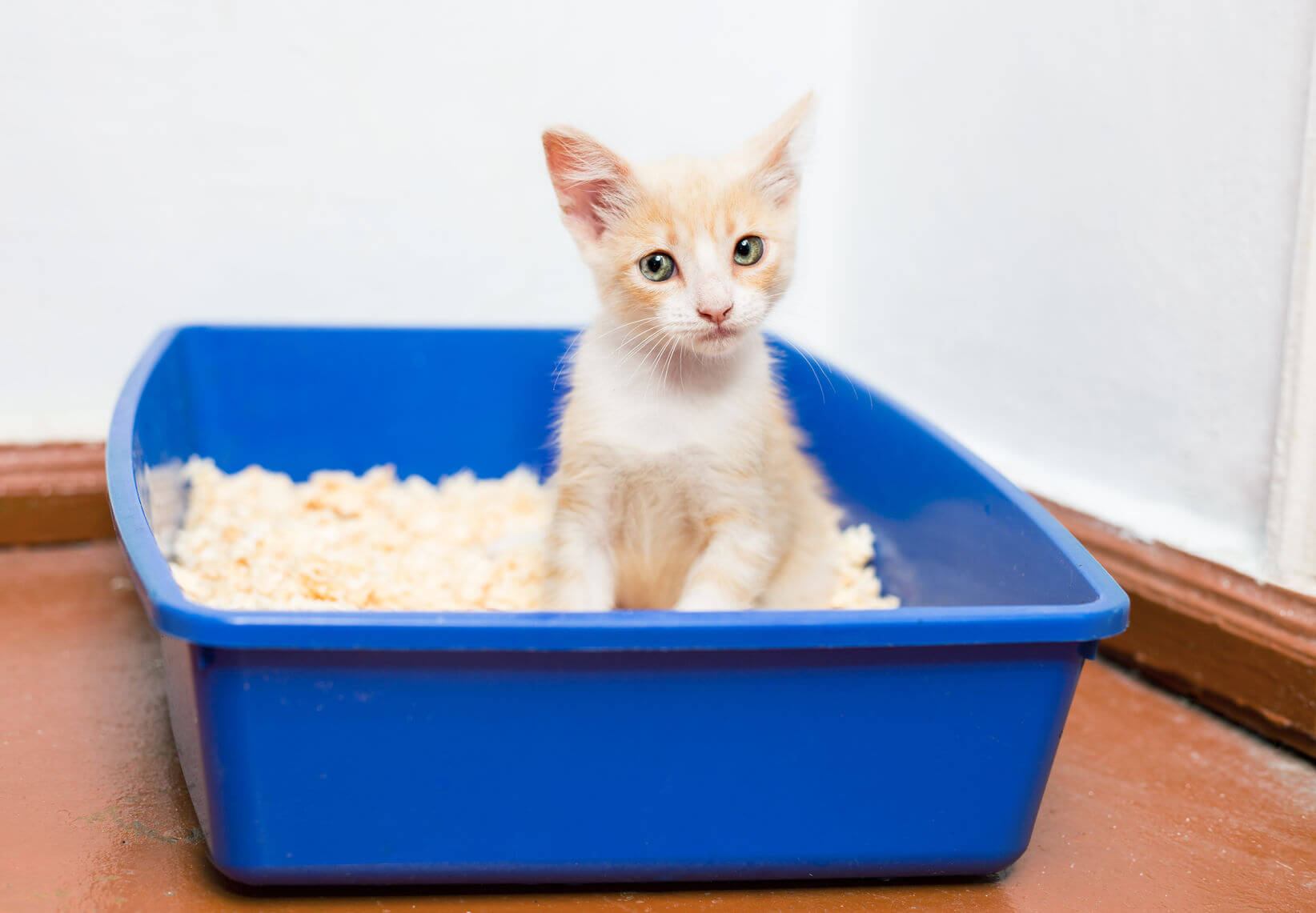How To Litter Train Kittens
 November 1, 2016
November 1, 2016
Are you having litter box problems with your kitten or older cat? In this special we will look at kitten-litter training that can help point your cat or new kitten in the right direction when it comes to toileting. For information on litter box problems with your older cat read our follow-up blog.
Many kittens arrive at their new abodes litter box ready with a good knowledge of what the flat box with the funny shaped pellets is all about. However, this is certainly not the case for all kittens. Depending on where you purchased your bundle of fluff from, there may be some inherent litter box problems caused by a host of unknown conditions.
What are the THREE golden rules when it comes to litter boxes?
- Cleanliness – kittens do not like to use a dirty, smelly litter box. Ensure you scoop and fully clean your litter box regularly. Rinse the box out with vinegar to remove any smells that may be highly offensive to kittens. Remember that many of the products that smell peachy-keen to humans, will make the litter box scent even worse for your cat. So, choose wisely. Vinegar, lemon juice or specially designed cat litter box cleaners are best.
- Position – keep litter boxes away from food and water bowls. Kittens and cats do not like to toilet near their eating and sleeping areas. Plus, it is also unhygienic. The litter box should be placed in a quiet and private area. High traffic and noisy zones may cause your cat to retreat into a cupboard or another silent area.
- Type of litter – cats are creatures of consistency. Ensure you use the same litter that came from the breeder/ shelter. A sudden change should be avoided. If you want to change litter, like with food, it must be done gradually. Click here for information on how to choose the right cat litter.
It is also a good idea to have a ‘kitten’ area for when you bring your wee kitten home. In this quiet area, you may consider placing a few toys, a soft bed, food and water bowls as well as their litter box. The litter box should be away from all food (a corner works well). When you first come home, introduce your kitten to their area and litter box by gently placing them inside. Allow your kitten to smell the litter and encourage them to dig. It is very important that you have researched the golden rule of the ‘type of litter’. If you do not know the litter your kitten was previously using, start with a basic natural soft litter. Upgrading to the 100% smell-proof technologically advanced litter can come gradually after your kitten has mastered the litter box. Some litters can be hard on the feet and smell different. To ensure success with your kitten, you’ll want the least smelling, easy on the paws litter you can find.
If you have a multiple cat household, you will need a few litter boxes in different locations. Your older cat will not appreciate the new member of the family using their box, and it may lead to an additional feline toileting problem. It’s best to have a few boxes on offer to avoid any ‘double-up’. Also, consider having your older cat use a hooded variety with a built-in cat door. Kittens find it almost impossible to push through a cat door at such a young age. This will allow your older cat privacy, while the new kitten adjusts to the litter box rules of the household that your existing cat may enforce.
Training your kitten is easy, the trick is to keep it consistent and positive. Shortly after each meal encourage your kitten to use their litter box and praise them for any urination, pooping and scratching. Offer your kitten a quick game of ‘chase the mouse’ after a successful potty episode and big pats with praise or even a possible treat.
After every sleep, repeat. You need to make the litter box a ‘positive’ place to be while training your kitten what the best times to go are (after a meal, sleeping, long play sessions etc.). If your kitten isn’t interested in the litter box doing a little scratch in the litter will normally entice her to join in.
If she defecates inappropriately, quickly clean the mess up (remember to use vinegar to eliminate the smell to your kitten) and encourage her to use the litter box. She will soon understand what this funny little box is all about. Avoid cleaning any mess with ammonia based products as this can turn the area behind the sofa into a neon flashing TOILET sign for your kitten, regardless of what it smells like to you.
If your kitten is showing any unusual toileting behaviour such as:
- Marking/ spraying
- Straining
- Blood in urine
- Unusual urination or defecation
It is important to seek veterinary advice. Any sudden changes or concerns should be discussed with your local veterinarian. If in doubt about your kitten’s toileting problems a quick call to your local veterinary nurse can help you decide if an appointment is necessary.
